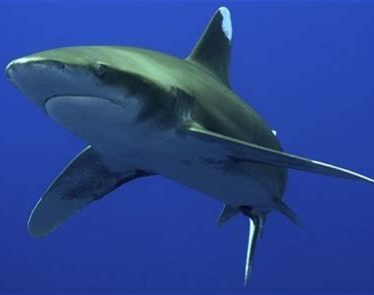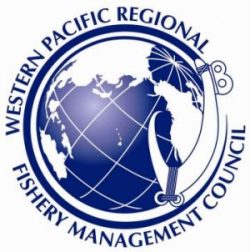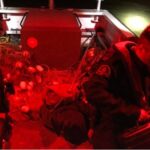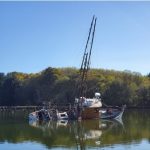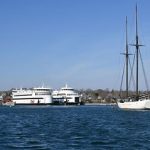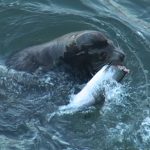Category Archives: Western Pacific
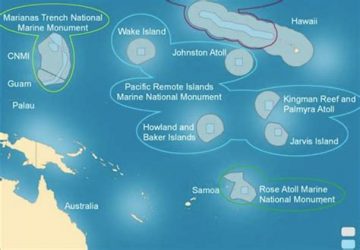
President Trump to make decision on monuments by April 16
President Donald Trump has until April 16th to either follow his Interior secretary’s recommendations to relax fishing restrictions in marine monuments key for American Samoa and Atlantic coast fishermen or let a court challenge to the monuments proceed. A federal court has agreed to allow Atlantic fishermen and lobstermen to proceed with a lawsuit that seeks to reverse Obama-era protections for the Northeast Canyons and Seamounts National Monument off the New England coast. But the case could have a direct bearing on when or how American Samoa’s tuna industry gets relief from fishing restrictions in the Pacific Remote Islands and Rose Atoll marine monuments. >click to read<16:02
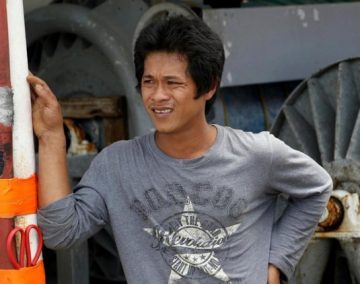
A 28-year-old fisherman from outside Ho Chi Minh City saved lives as F/V Princess Hawaii sank
Khanh Huynh has been a commercial fisherman since he was 12 years old. For the past six years, he’s been living on a fishing boat in Hawaii, catching premium ahi tuna for some of the world’s most discerning consumers. The 28-year-old fisherman from outside Ho Chi Minh City, Vietnam, recently saved the lives of two Americans and helped rescue five others after the fishing vessel he was working on sank hundreds of miles off Hawaii’s Big Island. But Huynh isn’t the captain. A federal observer who was one of eight people on the boat said the Vietnamese worker was in charge of the vessel from the time it left port to when it sank. >click to read<09:56

Sustainable Shark Fisheries and Trade Act of 2018 – bill nets solutions for overfishing
A new bipartisan bill introduced in U.S. Congress this month encourages a science-based approach to significantly reduce the overfishing and unsustainable trade of sharks, rays and skates around the world and prevent shark finning. The Sustainable Shark Fisheries and Trade Act of 2018 was introduced in the U.S. House of Representatives by Rep. Daniel Webster, R-FL, and Rep. Ted Lieu, D-CA, along with co-sponsors Rep. Bill Posey, R-FL, Rep. William Lacy Clay, D-MO, and Rep. Walter Jones, R-NC., >click to read<09:39
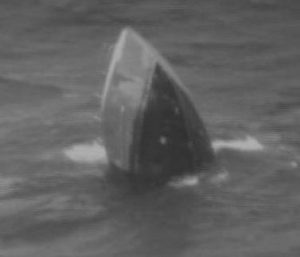
Wife says federal fishery observer on sunken boat ‘traumatized’
The wife of a federal observer who was aboard the fishing vessel that sank off the coast of Hawaii Island over the weekend said Wednesday that her husband, a humorous adventurer and outdoorsman, was shaken by the dramatic event. Steve Dysart was mostly uninjured, though “he said he has some bruises, some bumps, that sort of thing,” Sherri Dysart said. “He said sometimes he’s quite traumatized, but he’s able to come in and out of that. He sounded shaky, but in good spirits and thankful for the other crew members, they all worked as a team.” >click to read<07:31

Coast Guard locates 8 people in life raft over 400 miles north of Hawaii
A Coast Guard HC-130 Hercules aircrew from Air Station Barbers Point located a life raft with eight people aboard from the fishing vessel Princess Hawaii over 400 miles north of the Big Island, Sunday evening. The Hercules crew will remain on scene as long as fuel is available and the crew of the commercial fishing vessel Commander is en route to pick up the crew. The Princess Hawaii reportedly had a captain, six crewmembers and an observer from the National Oceanic and Atmospheric Administration aboard and was fishing within 20 miles of its sister ship, the Commander. >click to read< 09:08

US Commerce Secretary Wilbur Ross questions safety of seafood imports
U.S. Commerce Secretary Wilbur Ross addressed U.S. fisheries regulations and his concern about the quality of seafood imports with the U.S. Congress on Tuesday, 20 March, and he said he’s looking for NOAA Fisheries officials to work harder to reduce the country’s seafood trade deficit.,, “It’s one of my pet peeves,” Ross said, when asked by U.S. Rep. Steven Palazzo (R-Mississippi) what he planned to do to reduce the country’s seafood trade deficit. “I hate the idea that with all the water surrounding us and all the water inland that we have a trade deficit in fish. >click to read<13:05
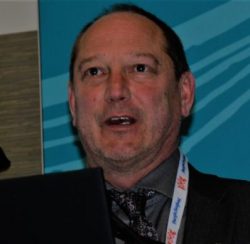
US fisheries’ leader Oliver asserts ‘business-minded’ stance
The US’ top regulatory authority on fishing used his first appearance ever at a Seafood Expo North America (SENA) conference on Sunday to describe how he was reshaping the mission at the National Oceanic and Atmospheric Administration (NOAA) to create more of a pro-business environment. Commercial fishermen largely applauded the Donald Trump administration’s selection of Chris Oliver to serve as NOAA’s assistant administrator of fisheries in June 2017. >click to read< 09:41
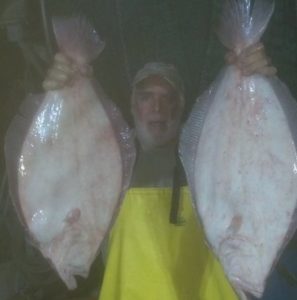
The US Senate needs to support the AMERICAN FISHERIES ADVISORY COMMITTEE ACT, S1322
To all, My name is Joel Hovanesian and I am a commercial fisherman who resides in RI but have held a CT. licence for some 30 years. I have a small inshore vessel now after selling my offshore boat in 2010. I have been dealing with Mike Gambardella since he started in the Borough. I want to bring an issue forward and give insight to some thoughts. I have been an outspoken critic of the way we have been managing our fisheries here in New England and other places on the Eastern Seaboard. We all recognize the fact that regulations need to be in place for obvious reasons, however as often happens when the Federal Government gets involved with things, they have a tendency to take on a life of their own. >click to read<13:36

What a disappointment. It seems Senator Markey is still holding out on Bill S1322, American Fisheries Advisory Committee Act
What a disappointment. I just got a call from Bruce Schactler of the National Seafood Marketing Coalition, and it seems Senator Markey is still holding out on Bill S1322…the American Fisheries Advisory Committee Act. Senator, I have always supported you because you were there for us with regards to fisherman. I am a retired Captain and we have met in the past. I have reached out to you many times recently regarding this important bill by Senator Sullivan of Alaska who has a bill that we want passed, and expect you to support. Sam Parisi>click to read< 21:15
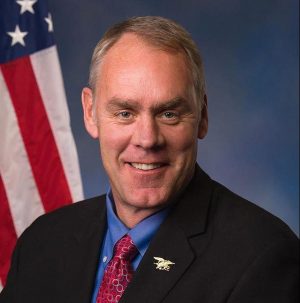
Zinke promises to ‘partner’ with oil industry, as offshore drilling opponents push back
Opponents of the Trump administration’s offshore drilling proposals pressed their case as a first 60-day public comment period drew to a close this week. Meanwhile Interior Secretary Ryan Zinke, speaking at a Houston energy industry conference Tuesday, talked up the offshore plan and other administration moves to streamline drilling and infrastructure permits. The Department of Interior, Zinke said, “should be in the business of being a partner” with industry. >click to read<10:11
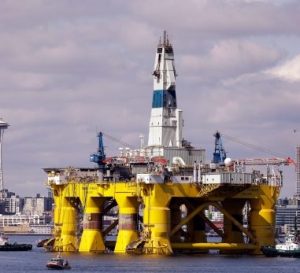
Gloucester again at center of drilling fight, along with everyone from every coast.
In the late-1970s, an unlikely alliance between environmentalists and commercial fishermen in this storied seaport helped block plans to open up Georges Bank to oil exploration — an effort that ultimately led to a federal moratorium on offshore drilling. Georges Bank, a shallow and turbulent fish spawning ground southeast of Cape Ann and 100 miles east of Cape Cod, has been fished for more than 350 years.,,, In Gloucester, those who fought similar efforts a generation ago are confident the city can again win a David vs. Goliath battle with energy companies. >click to read< The non-stop articles about the opposition to drilling is overwhelming. No one wants it. Wind farms are the real threat. 14:05
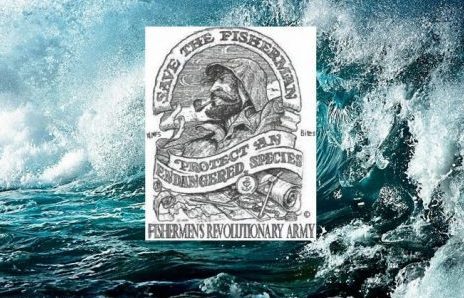
Nil’s Stolpe writes, The Magnuson-Stevens amendment I want under the Christmas tree
OVERFISHING! This has become one of the oceans branch of the doom and gloom prognisticator’s (aka Environmental Non Governmental Organizations or ENGOs) principal calls for alms. To wit, they have collectively raked in hundreds of millions of dollars from big business-supported foundations and trusting members of the public to persecute (generally commercial) fishermen who they preach are the cause of “overfishing,” the major threat to the sanctity of the oceans. (I’ll note here that the Pew “Charitable” Trusts was the multibillion dollar foundation that initiated the war on fishermen.) This purposeful misuse of the term “overfishing” has been one of the most subtle and most effective weapons in the anti-fishing activists’ arsenal. Nils Stolpe FishNetUSA >click to read< 18:00
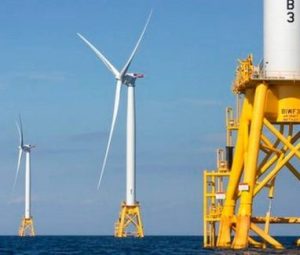
What Does the Jones Act Mean for Offshore Wind?
The Block Island Wind Farm, a 30-megawatt wind farm located just off the coast of Rhode Island, began operations in December 2016, fulfilling the goal of the project’s developer, Deepwater Wind LLC, to build America’s first offshore wind farm. The Block Island Wind Farm consists of only five wind turbines and is tiny in comparison to the large offshore wind farms operating off the coasts of Europe, but Deepwater Wind is planning larger wind farms off the coasts of New York, Massachusetts, Rhode Island, Maryland and New Jersey. Other developers are doing the same with other projects up and down the East Coast of the United States. >click to read< 14:37
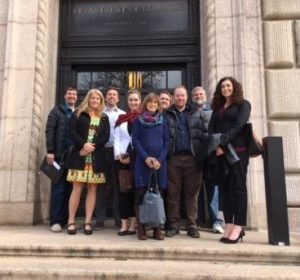
Alaska Fishing Delegation Heads To Washington
Representatives of the Alaska Longline Fishermen’s Association and the Alaska Marine Conservation Council– both members of the nationalFishing Communities Coalition (FCC) – were in Washington, DC, this week urging lawmakers to resist shortsighted efforts to weaken fishing communities by undermining key Magnuson-Stevens Act accountability provisions.,,, “The MSA is working in Alaska and around the country because all sectors adhere to scientifically-sound annual catch limits. >click to read<09:54
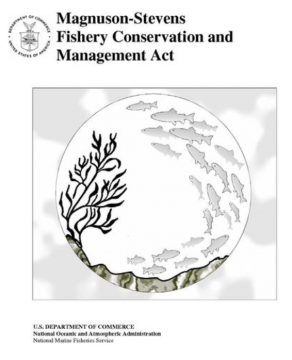
HR 200 – 24 Fishing Groups from Around the Nation Call for Magnuson-Stevens Act Reforms
Twenty-four members of Saving Seafood’s National Coalition for Fishing Communities (NCFC) are calling on Congress to enact broad reforms to the Magnuson-Stevens Act (MSA), including allowing for greater flexibility in how stocks are rebuilt and changes to how new management programs are implemented. The proposals, delivered in a letter to Alaska Senator Dan Sullivan, would, according to the signers, lead to a reauthorization that “allows for both sustainable fisheries management, and the long-term preservation of our nation’s fishing communities.” >click to read< 13:22 
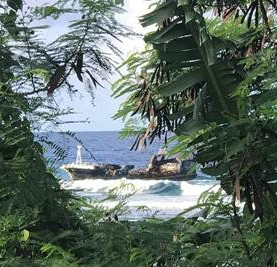
Fire-stricken Fishing Vessel Grounds in the Samoan Islands
A fire-stricken commercial fishing vessel that had been adrift in the Pacific for more than three months has run aground in the Samoan Islands on Monday. The 88-foot Taiwanese-flagged Chu Zai Fa No. 1 reportedly caught fire in international waters on November 4, 2017 and remained adrift until this week, when it grounded in Leone Bay about 300-yards off the western part of Tutuila, the main island of American Samoa. The fire forced the Chu Zai Fa No. 1 crew to abandon ship, and most were rescued by a Korean-flagged vessel and brought to Fiji aboard a sister fishing vessel. The master and one crewmember are said to be missing. >click to read< 13:26
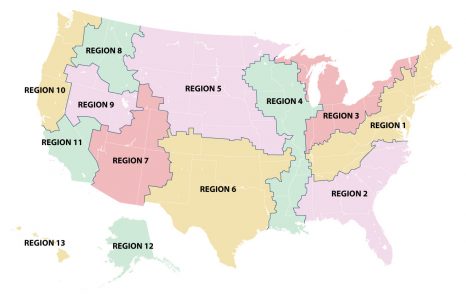
A new push to deregulate America’s oceans and backcountry
Recent decisions at the Interior and Commerce departments are opening the doors for more commercial exploitation of US fisheries and land resources. Advocates say the changes finally allow local voices to be heard. Critics say science is being ignored in favor of industry.,, But while these lands and waters may belong to every American, some feel particularly invested, including the roughnecks, loggers, fishermen, hunters, snowmobilers, and miners who eke out tough livings from rough but beautiful surroundings. Many of them, like New Hampshire boat owner, biologist, and former fishery council member Ellen Goethel, have watched resources grow increasingly off-limits under what she calls a “one-size-fits-all” conservation approach implemented by the Obama administration. >click to read< 11:48
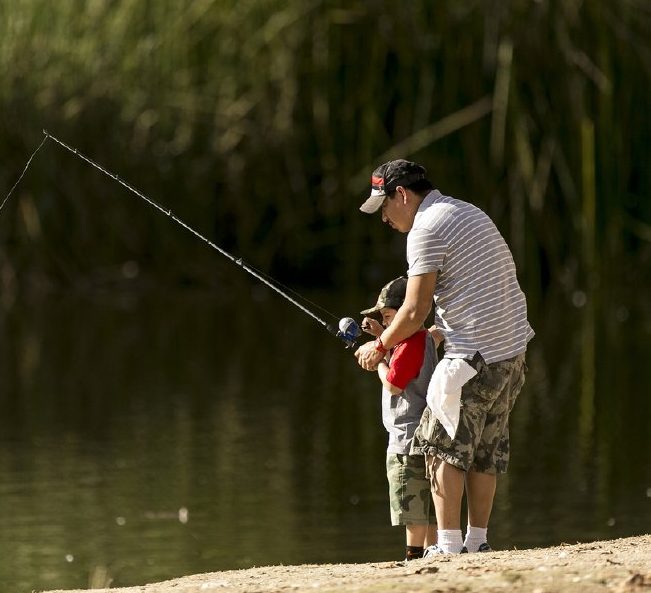
H.R. 200 – More than one way to manage the nation’s fisheries
For the first time ever, reauthorization of the nation’s overarching marine fishery management law will take into account concerns of America’s recreational anglers. In mid-December, the U.S. House Committee on Natural Resources approved H.R. 200, a bill sponsored by Rep. Don Young, R-Alaska, amending the 1976 Magnuson-Stevens Fishery Conservation and Management Act. While the vast majority of the public hails progress on the bill as long overdue, an unusual coalition of environmentalists and commercial fishing entities has roundly condemned it, feverishly depicting the bill as an attack on the oceans and a threat to the future of the nation’s marine resources. >click here to read< 20:57
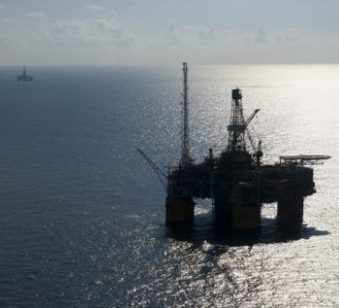
2019-2024 National Outer Continental Shelf Oil and Gas Leasing Program Public Meetings Scheduled Nationwide
Public meetings will take place across the country using an open-house format, so participants can arrive any time during the scheduled meeting time. At the meetings, participants can ask questions, share information, talk with our team members one-on-one, and learn more about the National OCS Program. We also encourage participants to submit written comments to inform BOEM of specific issues, impacting factors, environmental resources, alternatives to the proposed action, and mitigation measures to consider in its analyses. For those unable to attend one of the scheduled meetings, BOEM is offering a Virtual Meeting Room where participants can visit the same stations available at the open house meetings. There they are able to review and download the same handouts and posters offered at the meetings and provide comments. >click for times, dates, and locations<15:36
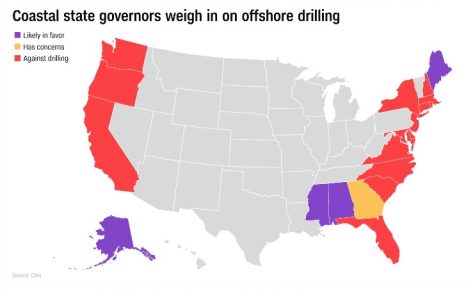
Nearly every governor with ocean coastline opposes Trump administration drilling proposal
The Trump administration’s proposal to open vast portions of US coastline to oil drilling was met with ferocious opposition from a number of the coastal governors it would affect. At least one governor, Florida’s Rick Scott, a Republican, asked for and received a waiver from the administration. That move by Interior Secretary Ryan Zinke drew accusations of favoritism, which have been denied. But the fact remains that nearly every governor with ocean coastline opposes drilling off their coast or, in one case, has concerns. >click here to read<11:12 
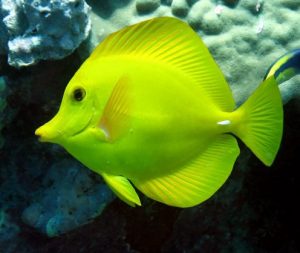
Why save the Hawaii Aquarium Fishery? Aquarium Fish Collectors and what we do
The September 6, 2017 Hawaii Supreme Court HEPA (Hawaii Environmental Protection Act) ruling has nearly shut down Hawaii’s aquarium fishery. It will take years and cost hundreds of thousands of dollars in legal fees to get HEPA filings finished even though the studies proved our fishery sustainable long before the courts considered the issue. Based on the Court ruling, all Department of Land and Natural Resources (DLNR) ocean business permits will be facing HEPA permit requirements.,,, Please support Hawaii’s sustainable fisheries. Jesus and George Washington where fishermen! click here to read the story 10:58

FISHBILL-US: Fishermen, Lets unite like never before!
It becomes clearer by the day that our industry needs protection in the form of legislation for fishermen and supporting industries. While fishermen and those supporting industries are struggling to survive in various regions, many of them await federal assistance in already declared federal fishery failures, much of it beyond their control. Congress has mandated the NOAA is the agency that controls the “best available science”, while other data is not considered, by law. This must be addressed as we watch the industry retract based on the science many of us have no confidence in. They control our fate. click here to read the full post 20:22
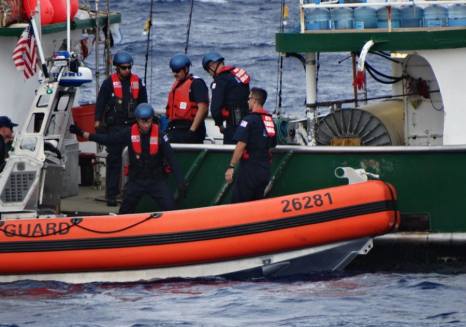
“Paper Captain” – Coast Guard cites fishing boat for illegal foreign captain
The U.S. Coast Guard said Friday it found a foreign worker acting as the captain of an American-flagged commercial fishing vessel in federal waters off Hawaii. The crew of the U.S. Cutter Oliver Berry boarded the unnamed vessel on Dec. 19 and issued a citation after they suspected a foreign national was acting as the captain and operating the boat, the Coast Guard said in a statement . It’s illegal for a foreign national to operate a U.S.-flagged commercial vessel. The Coast Guard said the vessel was cited for a violation known as a “paper captain.” click here to read the story 18:43
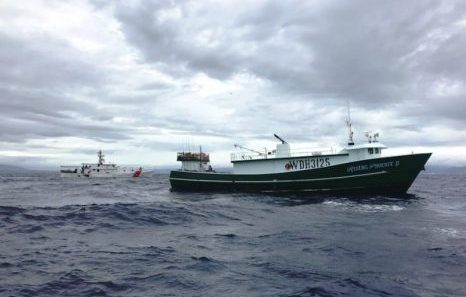
Coast Guard Cutter Oliver Berry completes at-sea fisheries enforcement patrol off Hawaii
The crew of Coast Guard Cutter Oliver Berry (WPC 1124), a 154-foot Fast Response Cutter homeported in Honolulu, recently completed a 10-day patrol of the U.S. Exclusive Economic Zone in the Hawaiian Islands region. They conducted six boardings on Hawaii-based, U.S.-flagged long-line fishing vessels and issued eight safety and fisheries regulations violations.,, On Dec. 19, while conducting a boarding of a U.S.-flagged longline fishing vessel, the boarding team suspected a foreign national was acting as the vessel captain and operating the vessel. click here to read the story 18:13 

All Hands on Deck! Sam Parisi gives an update on efforts to get a Fish Bill, wants to know what YOU want included!
First let me thank Fisherynation.com for publishing my letter. I have received many emails and calls from fishermen and fisheries association’s, and it has been great to have them join in with me. I have also had many ask what is this Fish Bill all about ,and they deserve and answer. To be clear, I do not know how to write a bill, and at some point a Senator or Congressman will have to write the bill, with all the specifics spelled out. Now is the time to discuss and add input about what you’d like to see in your US Fish Bill. In the meantime, here is a brief summary of what some of us would like the bill to do. click here to read the story 18:42

9th Circuit Gives Enviros New Way to Shut Down Hawaii Fishing Fleet
Federal agencies must rethink permitting a swordfish-catching operation to increase the use of a fishing method that can kill endangered sea turtles and seabirds, according to a decision by a federal appeals court on Tuesday. Two of the three judges on a Ninth Circuit Court of Appeals panel agreed with the Turtle Island Restoration Network and other environmental organizations that argued the National Marine Fisheries Service acted improperly when it increased the amount of sea turtles that could be killed incidentally in the waters off of Hawaii as part of a fishing method called longlining. Specifically, the majority said the fisheries service failed to properly integrate a climate-based model that showed significant declines in the population of the loggerheads sea turtle. click here to read the story 09:06 

US Fish-Bill Unity – Sam Parisi
Recently, Fisherman Jon Johnson wrote an opinion piece in Fisherynation.com (Why Fishermen Fail To Unite and Resist Being Swept Off of Our Historic Fishing Grounds) about the reasons for, and lack of unity in the U.S. fishing industry on fishery issues affecting the industry, and while I agree with most of his points, we must remember we are at fault a lot of the time, without knowing even knowing it. I have always thought if, we together, could agree on the need for a US Fish Bill, we could get real stability for all in our US Fisheries. I am not alone, as I am receiving calls from many representatives of fishing organizations, and of various fishing communities. We need input from fishermen in every region, from every fishery, and I invite you to get involved. Merry Christmas from Gloucester Mass! Sam Parisi, Gloucester 978 491 7722 [email protected] 16:58






